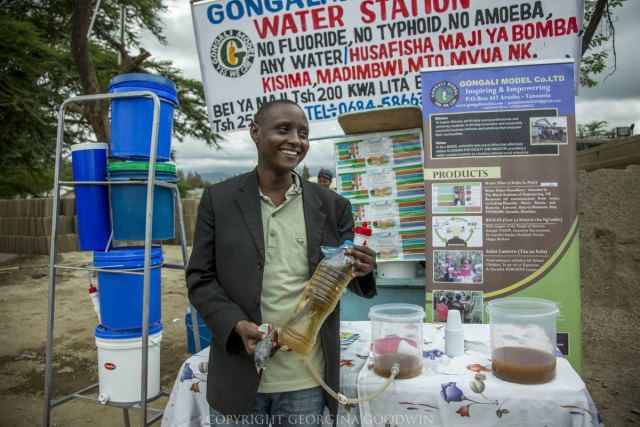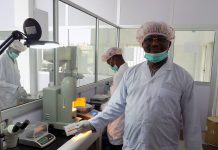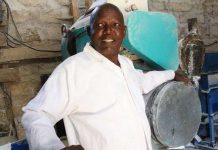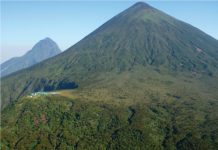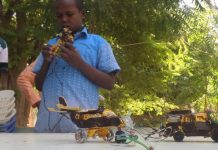(A column highlighting scientific, technological, engineering, and design innovation in Africa)
Tanzanian Askwar Hilonga, Ph.D., a chemical engineer and entrepreneur, developed a water filter system that integrates nanotechnology with sand-based water filtration to provide clean, safe drinking water. Hilonga’s “Nanofilter” is described as “affordable and sustainable and highly relevant in rural settings across Africa where access to clean water remains a huge challenge.
According to a 2012 World Health Organization/UNICEF report, 94 percent of the 187 million people worldwide who relay on surface water for drinking are rural inhabitants in sub-Saharan Africa. In Tanzania, for example, nearly half of the population cannot access potable water, despite the country’s proximity to freshwater lakes.
Hilonga’s Nanofilter is designed to absorb the contaminants in a specific body of water, whether those contaminants are minerals such as copper and fluoride; biological, such as bacteria; or pollutants, such as pesticides. Its ability to be customized for individual, household, and communal use depending on the contaminant at issue distinguishes it from the “Nanoscavenger” developed at Stanford University, and the “LifeStraw” developed by the Swiss company Vestergaard, Hilonga said.
Hilonga obtained his doctorate in nanotechnology and master’s degrees in chemistry and public health in South Korea. In an interview with Technology4Change, he explained his drive to develop an innovative way to provide cheap, easily accessible potable water. “I asked myself an ethical question, ‘what does my Ph.D. mean to my community in Tanzania which is still suffering from water borne diseases,’” he said. “So, now I am focused on developing nanomaterials that are suitable for water purification, and I am seeing commercial feasibility of this adventure.”
Hilonga, 38, is a lecturer at The Nelson Mandela African Institute of Science and Technology (NM-AIST) in Tanzania, and a co-founder of Gongali Model Co. Ltd., the company named after the village in rural Karatu-Arusha where he was born. Staying true to its motto, “Academia for Society and Industry,” the institute provided Hilonga with the equivalent of US$7,000 in seed capital to build the pilot for a nanotechnology-based water filtration system.
In June 2015, Hilonga won the Royal academy of Engineering’s 2015 Africa Prize for Engineering Innovation, beating out 11 other finalists for the £25,000 (just over US$39,000) in top-prize money. In the run-up to the selection of the winner, all 12 finalists received six months of training and mentoring support from business development and engineering experts. Gongali Model Co. is using this training, the grant from NM-AIST, and the Africa Prize money to commercialize the Nanofilter.
To date, more than 20 businesses in Karatu are selling the filters. Local schools are using the filters to provide clean drinking water. Hilonga’s goal now is to “develop an entire independent system, from filter case to water bottles.”


